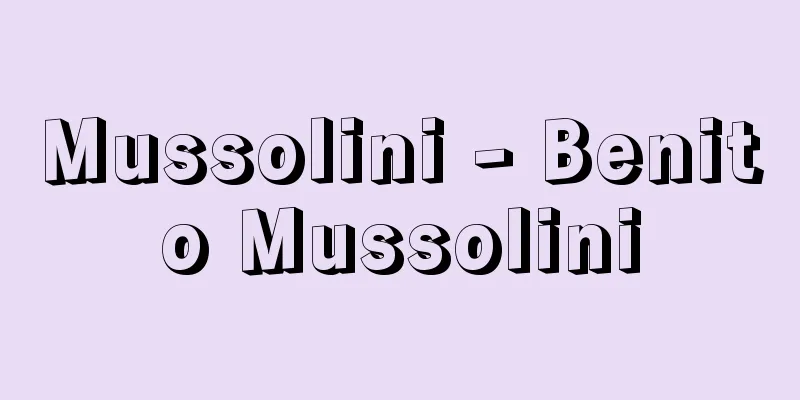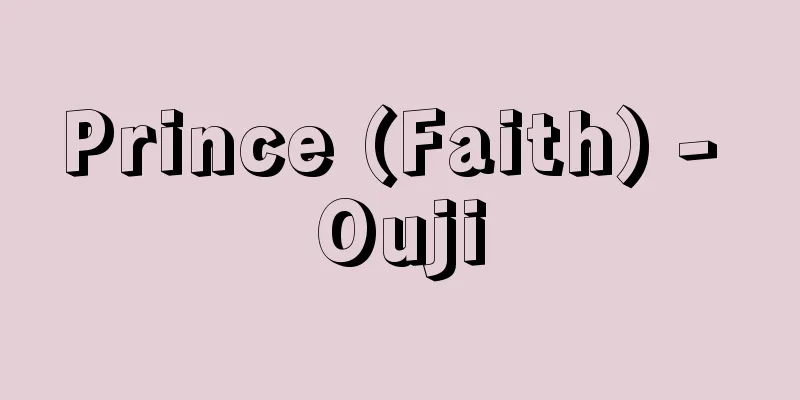Mussolini - Benito Mussolini

|
Italian politician and founder of Fascism. Born as the son of a blacksmith in the village of Predappio in the Romagna region. He spent his youth under the strong influence of his father, an anarchist and anti-clerical socialist. After graduating from normal school, he wandered around Switzerland for about two years from 1902. In this country where refugees gathered, he gained experience in the socialist movement, awakened his talent for oratory and journalism, and became acquainted with various ideological yeasts that would later ferment within him (Soler, Blanqui, Nietzsche, Pareto). After returning to Italy, he did military service (1905-1906), but after being discharged he worked as a teacher in various places and contributed to local socialist newspapers (1908). He then became secretary of the Chamber of Labour of Trento in Austria, but soon returned to Romagna and became secretary of the Socialist Party Federation of Forli (1910). There he founded the newspaper Lotta di Classe (Class Struggle), which promoted anti-clericalism and revolutionary socialism. When the Libyan War broke out, he incited anti-war protests and was imprisoned for five months (1911). After this incident, he became somewhat known within the party as an extremist, but at the 1912 party conference, he was in the limelight for his speech on expelling right-wing reformists, and was quickly elected to the leadership. Soon after, he became editor-in-chief (and de facto party chairman) of the party's organ newspaper Avanti (Advance), and under his leadership, the intransigent left wing came to dominate the executive and party organs, and the paper became a forum for the revolutionary left, including former syndicalists outside the party. At the time of the outbreak of World War I (1914), he defended the party's position of absolute neutrality, but as the war situation developed, he sympathized with the logic of the syndicalists, who envisioned revolution through war, and in October 1914, he published an argument for participation in the war in the party's organ, which led to his expulsion from the party. In November of the following year, with financing from Italian industrialists and others, he launched a daily newspaper, "La People di Italia", which not only contributed to the organization of the left wing and democratic participation movement, but also became the organ of the postwar fascist movement. In August 1915, he was drafted and served on the front lines, where he was seriously wounded and discharged. After the war, when the antagonism and confrontation between the pro-war and anti-war factions intensified, Mussolini formed the "Combat Fascina" in Milan in March 1919 with some of the pro-war factions. This movement expanded rapidly from the end of 1920 as an enemy of the Socialist Party, and in the fall of 1921 it was reorganized as the Fascist Party. As the leader of the party, he used the party as a lever to control the anarchic Fascist movement, and while using the movement to make political deals with the old ruling class, he marched on Rome in October 1922, formed a cabinet, and came to power. He would remain prime minister for more than 20 years. He started out with a coalition government, but after Matteotti's assassination in 1924, Mussolini was in crisis in the face of the boiling anti-fascist public opinion, so he threw away the pretense of democracy, dissolved all political parties and organizations other than Fascism, and established a so-called one-party dictatorship (1925-1926). He succeeded in freezing the class struggle, stabilizing the economy, and completing a compromise policy with the former ruling class by signing the Lateran Accords with the Church in 1929, and winning the consent of the people. At the apex of this regime, Mussolini held all power and was officially called the Duce (leader). In October 1935, Italy invaded Ethiopia, but was forced to approach Germany to counter international public opinion and the League of Nations, which protested against this. Italy's intervention in the Spanish Civil War (1936) further encouraged this approach, leading to the formation of the Berlin-Rome Axis (1936), Italy's withdrawal from the League of Nations (1937), the introduction of anti-Semitism (1938), and a military alliance with Germany (1939). Italy entered World War II after Germany (June 1940), but its defeat in the invasion of Greece that began in October 1940 made its subordination to Germany definitive. With defeat looming, in July 1943, Mussolini was ousted overnight in a military coup and imprisoned in the mountains of Gran Sasso. The German army rescued him, and in September of the same year, they established a puppet state (the Italian Social Republic) in northern Italy. In April 1945, a partisan uprising wiped out Nazi-Fascist rule, and he attempted to flee to Switzerland, but was captured by partisans on the shores of Lake Como and executed on the 28th of the same month. [Yasuro Shigeoka] "Mussolini" by Laura Fermi, translated by Shibata Toshio (1967, Kinokuniya Shoten)" ▽ "Mussolini and Fascism" by Paul Guichonnet, translated by Hasegawa Kimiaki (Hakusuisha, Quessais-Ju Bunko)" ▽ "The Age of Mussolini" by Max Gallo, translated by Kimura Yutaka (1987, Bungeishunju)" ▽ "The Real Dictator: My Husband Mussolini" by R. Mussolini et al., translated by Tanigame Toshikazu (1980, Kadokawa Shoten)" [References] | | | |Source: Shogakukan Encyclopedia Nipponica About Encyclopedia Nipponica Information | Legend |
|
イタリアの政治家、ファシズムの創始者。ロマーニャ地方プレダッピオ村の鍛冶(かじ)職人の息子として生まれる。無政府主義者で反教権的社会主義者であった父親の強い影響の下で青春期を過ごした。師範学校卒業後、1902年から約2年間スイス各地を放浪。亡命者の集まるこの国で社会主義運動の生活体験を積み、弁説やジャーナリストの才能に目覚める一方、のちに彼のうちで発酵することになる種々の思想的酵母(ソレル、ブランキ、ニーチェ、パレート)を知った。帰国後、兵役についた(1905~1906)が、除隊して各地で教師生活をしながら社会主義地方新聞に寄稿する(1908)。その後オーストリア領トレントの労働会議所書記となったが、まもなくロマーニャに帰り、フォルリの社会党連盟書記になった(1910)。ここで『ロッタ・ディ・クラッセ(階級闘争)』紙を創刊、反教権主義と革命的社会主義を宣伝し、リビア戦争が起こると反戦行動を扇動し、5か月間投獄された(1911)。この事件以来、党内で過激主義者として多少知られるようになるが、1912年の党大会では右翼改良主義者の追放演説で脚光を浴び、一躍指導部に選出された。まもなく党機関紙『アバンティ(前進)』の編集長(事実上の党委員長)になると、彼の指導下に執行部と党機関で非妥協的左派が多数となり、同紙は党外の旧サンジカリストを含めた革命的左派の論壇となった。第一次世界大戦の勃発(ぼっぱつ)(1914)当時、彼は党是である絶対中立の立場を擁護したが、戦局の展開とともに、戦争を通じて革命を展望するサンジカリストの論理に共鳴し、1914年10月、参戦論を機関紙に発表し、党を追われた。翌11月、イタリア工業家などの融資を受けて日刊新聞『イタリア人民』紙を発刊したが、これは左翼および民主的参戦運動の組織化に貢献しただけでなく、戦後ファシズム運動の機関紙にもなった。1915年8月に応召して前線勤務につき、重傷を負って除隊した。 大戦後、参戦派と反戦派の反目・対立が激化する1919年3月、ムッソリーニは参戦勢力の一部とともにミラノで「戦闘ファッシ」を結成。この運動は1920年末から社会党に敵対する勢力として急速に膨張し、1921年秋にはファシスト党に改組された。彼は党首としてこの党をてこにアナーキーなファシスト運動を統制し、旧支配層との政治的取引に運動を利用しながら、1922年10月ローマ進軍を行い、組閣して権力に到達した。以後20年以上も首相の座を守ることになる。当初連立政権から出発したが、1924年のマッテオッティ暗殺後、反ファシズムの世論の沸騰を前に危機に陥ったムッソリーニは民主主義の装いをかなぐり捨て、ファシズム以外のあらゆる政党と組織を解体し、いわゆる一党独裁体制を樹立した(1925~1926)。階級闘争の凍結と経済の安定化、さらに教会とのラテラン協定調印(1929)により旧支配層との妥協政策を完成し、国民の同意を得ることにも成功した。この体制の頂点にあってすべての権力を掌握したムッソリーニは、公式にドゥーチェ(首領)とよばれた。 1935年10月エチオピア侵略に乗り出したが、これに抗議する国際世論と国際連盟に対抗するためドイツへの接近を余儀なくされた。スペイン内戦への介入(1936)はこの接近をますます促し、ベルリン・ローマ枢軸の形成(1936)、国際連盟脱退(1937)、反ユダヤ主義の導入(1938)を行い、ドイツとの軍事同盟(1939)に達した。第二次世界大戦にドイツに遅れて参戦(1940.6)したが、1940年10月に始まるギリシア侵攻の敗北により、ドイツへの従属は決定的となった。敗色濃厚の1943年7月ムッソリーニは、軍部のクーデターによって一夜のうちに失脚し、グラン・サッソの山中に拘置された。ドイツ軍は彼を救出し、同年9月北イタリアに傀儡(かいらい)国家(イタリア社会共和国)を樹立。1945年4月パルチザンの蜂起(ほうき)により、ナチ・ファシストの支配は一掃され、スイスに逃亡を図った彼は、コモ湖畔でパルチザンに捕らえられ、同月28日処刑された。 [重岡保郎] 『ローラ・フェルミ著、柴田敏夫訳『ムッソリーニ』(1967・紀伊國屋書店)』▽『ポール・ギショネ著、長谷川公昭訳『ムッソリーニとファシズム』(白水社・文庫クセジュ)』▽『マクス・ガロ著、木村裕訳『ムッソリーニの時代』(1987・文芸春秋)』▽『R・ムッソリーニ他著、谷亀利一訳『素顔の独裁者――わが夫ムッソリーニ』(1980・角川書店)』 [参照項目] | | | |出典 小学館 日本大百科全書(ニッポニカ)日本大百科全書(ニッポニカ)について 情報 | 凡例 |
<<: Mutsu Province - Mutsu no Kuni
Recommend
Habit of being there
...Most of the stories are told by the shite, and...
Hammond, G.
...Tobacco smoke contains various carcinogenic hy...
Heretical sect - Jashumon
Kitahara Hakushu's first collection of poems....
jejunum
…The contents of the small intestine are transpor...
Battle of Ishizu
During the Nanboku-cho period, the Ashikaga factio...
Shadow (song) - Kageboshi
…Schubert himself intended the first 13 songs to ...
Howe, Gordie
Born March 31, 1928 in Floral, Canada [Died] June ...
Gold inlaid sword
…These white ink paintings are deeply connected t...
Lecythis usitata (English spelling) Lecythisusitata
...the seeds of several species of the genus Lecy...
Kawagoe
...It stretches from the northern end of the Musa...
Kaspiiskoe more (English spelling)
…It is surrounded by Iran, Azerbaijan, Russia, Ka...
Silver fox - Gingitsune (English spelling) silver fox
A type of fox that belongs to the order Carnivora...
Mar Bermejo (English spelling) MarBermejo
…On the peninsula side, the mountains are close t...
Butt of a tree
〘noun〙① The bottom end of a tree. The part of timb...
Gill breathing - Gill breathing
…In contrast, the lungs of land animals are organ...









